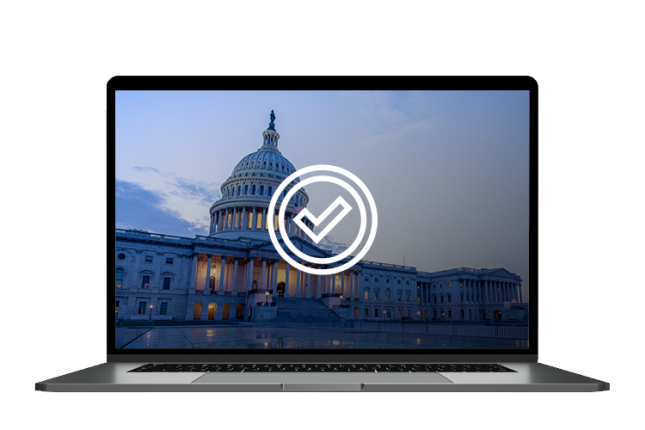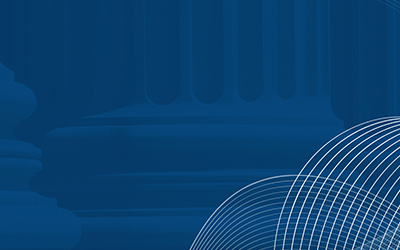Check out this month’s Compliance Matters newsletter, your one-stop shop for benefits compliance news! The employee benefits landscape is in a state of constant change. Get timely, accurate news regarding impactful legislative changes – and the resulting requirements, exposures and opportunities.
Employee Benefits Compliance Alerts
National Emergency Will End Sooner than Expected
- In January, the White House announced the end of the National Emergency (NE) and Public Health Emergency (PHE) would take place on May 11, 2023; however, on March 29, 2023, Congress passed a resolution that ends the National Emergency immediately.
- Once President Biden signs the resolution it will become law, and the National Emergency will end.
- The resolution does not affect the end of the Public Health Emergency.
- The end of the National Emergency means the time period for regarding certain deadlines that affect employer benefit plans will end earlier than expected.
CMS Provides Updated RxDC Reporting Instructions
- The next round of prescription drug data collection (RxDC) reporting is due June 1, 2023.
- On March 27, 2023, the Centers for Medicare and Medicaid Services (CMS) released updated instructions for reference year 2022.
- The updated instructions provide clarity on many pending issues and answer questions from the first round of reporting.
- The new guidance did not provide good faith relief or a grace period for the 2022 reference year.
Gag Clause Attestation Guidance Released
- The Consolidated Appropriations Act of 2021 (CAA) prohibits group health plans and health insurance carriers from entering into agreements with providers, TPAs, or other service providers that include language that constitutes a “gag clause.”
- The gag clause prohibitions became effective on December 27, 2020, but the attestation requirement was delayed pending the release of further guidance.
- The gag clause compliance attestation is due by December 31, 2023.
- Subsequent attestations are due annually by December 31.
Revisiting the DOL’s Cybersecurity Guidance
- In July 2021, the Department of Labor (DOL) released cyber security “best practice” guidance for Employee Retirement Income Security Act (ERISA) plan sponsors.
- It appears that the DOL is establishing best practices and expectations for plan sponsors with respect to their service providers and what to expect in the event of an audit.
- Employers as plan sponsors should take reasonable steps to implement cybersecurity practices within their organizations.

Additional Updates & Resources
Updated ACA Penalties for 2024
In March, the Internal Revenue Service (IRS) released IRS Revenue Procedure 2023-17 which provides updated penalties for applicable large employers (ALEs) with 50 or more full-time equivalent (FTE) employees under the employer shared responsibility provisions (employer mandate) of the affordable care act (ACA). For the calendar year 2024, penalty A (the penalty for not offering coverage to at least 95% of FTEs) will be $2,970, increasing from $2,880 in 2023 and penalty B (the penalty for not offering coverage that is affordable or minimum value) will be $4,460, increasing from $4,320 in 2023.
IRS Eliminates Paper Filing Option for ACA Returns
On February 23, 2023, the Internal Revenue Service (IRS) released final regulations lowering the threshold for filing electronic returns for ACA reporting from 250 to ten. Additionally, a partnership with at least 100 partners must file returns electronically regardless of the number of returns being filed. This is a substantial deviation from proposed regulations released in 2021 which included a transition year for employers filing less than 100 returns. Employers should be prepared to file electronically for the 2023 calendar year.
IRS Releases FAQs on Nutrition, Wellness and Health Costs
On March 17, 2023, the Internal Revenue Service (IRS) released several frequently asked questions (FAQs) that address whether certain costs related to nutrition, wellness and general health are medical expenses that may be paid or reimbursed under a health savings account (HSA), health flexible spending arrangement (FSA), Archer medical savings account (Archer MSA) or health reimbursement arrangement (HRA). The information has been available in the Internal Revenue Code (IRC) and various IRS publications for quite some time, but the FAQs provide clarifying guidance to the existing IRC.
Section 213 of the IRC generally allows a deduction for expenses paid during the taxable year for medical care if certain requirements are met and are eligible to be paid or reimbursed under an HSA, FSA, Archer MSA, or HRA. Medical expenses are the costs of diagnosis, cure, mitigation, treatment, or prevention of disease, and for the purpose of affecting any part or function of the body. These expenses include payments for legal medical services rendered by physicians, surgeons, dentists, and other medical practitioners. They must be primarily used to alleviate or prevent a physical or mental disability or illness, and not merely beneficial to general health.
Among other things, the FAQs clarify that the costs of dental, eye, and physical exams are medical expenses that can be paid or reimbursed by tax advantaged spending accounts because these exams diagnose whether a disease or illness is present. The FAQs further state that costs for tobacco cessation programs and substance abuse programs are medical expenses. The IRS clarifies that only certain types of therapy are eligible medical expenses. For example, costs for nutritional counseling and weight loss programs are medical expenses if they treat a diagnosed medical condition, and that costs for items like gym memberships or food and beverages for weight loss will qualify as medical expenses in certain conditions.
Additional information about whether costs related to nutrition, wellness, and general health are medical expenses under the IRC, refer to Publication 502, Medical and Dental Expenses and Tax Topic 502, Medical and Dental Expenses. For more information about HSAs, FSAs, Archer MSAs, and HRAs, see Publication 969, Health Savings Accounts and Other Tax-Favored Health Plans.
According to the accompanying IRS release IR-2003-47, the FAQs are an attempt to make the information more accessible as part of the National Strategy on Hunger, Nutrition, and Health. The National Strategy provides a roadmap of the federal government’s actions to end hunger and reduce diet-related diseases by 2030 by improving food access and affordability, focusing on nutrition and health, empowering consumers to make healthy choices, supporting exercise, and enhancing nutrition research.
San Francisco HCSO Annual Form Due April 30
Employers covered by the San Francisco Health Care Security Ordinance (HCSO) are required to report on their compliance with the law for calendar year 2022 by submitting the Employer Annual Reporting Form (ARF) by midnight on May 1, 2023. Employers who do not comply may be subject to penalties of $500 per quarter. The San Francisco Office of Labor Standards Enforcement (OLSE) will release the reporting form that employers will use to report HCSO expenditures is now available. Refer to the HCSO website for the most current guidance, information, and forms.
Washington Long-Term Care Tax Delayed Until July 1, 2023
Recent bills delayed the start of the Washington Cares Fund (WCF) payroll tax until July 1, 2023. The payroll tax was originally slated to begin on January 1, 2022, but on December 17, 2021, Governor Jay Inslee announced a delay and additional guidance was pending for over a year. WCF requires employers with Washington employees to collect a 0.58% payroll tax to fund a state long-term care program, which because of delays will now begin in 2026. Employees must pay premiums to the state for at least one year to be eligible to receive benefits, and then are eligible for benefits based on the number of years they paid into WCF. Employees may apply for a payroll exemption under certain circumstances, such as obtaining their own qualified long-term care policy. Exemptions are not automatic, and employees must have applied before November 1, 2021.
Visit our Compliance Insights page for alerts, webinars and featured articles based on your questions – and check out all our Employee Benefits Insights.
Visit our Compliance page and see how our
EPIC team can help your business thrive!

